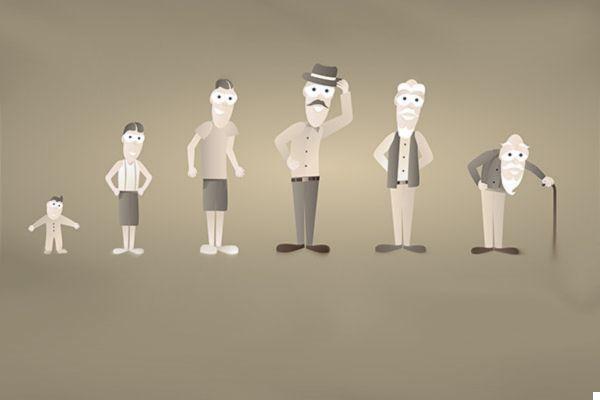
Good self-esteem has been linked to greater success and happiness, while low self-esteem has been linked to ailments such as depression and learned helplessness. Self-esteem is the value we give to ourselves and the feelings we feel, how much we appreciate and like ourselves, in short.
Many think self-esteem is a stable and enduring personality trait, but that's not the case. In the same way that we can develop good self-esteem, we can also lose it. Self-esteem is rather like a plant that we must grow, care for and protect every day.
Why is self-esteem so important?
Self-esteem plays a fundamental role in the motivation and success we will have in life. Low self-esteem can prevent you from being successful simply because you think you don't have the necessary qualities. Conversely, good self-esteem will encourage you to push yourself, allow you to face adversity with a more positive attitude, and keep you motivated along the way.
Self-esteem is also important because it determines the feelings we have. A person with low self-esteem may be successful in some areas of life, but even so, they will not be satisfied with themselves, which will make them miserable. A person with healthy self-esteem will not complain in vain, assume their mistakes, learn their lesson and go further.
How does self-esteem change with age?
Self-esteem, like personality, changes over the years. Usually, when we go through different life experiences we mature, so the different parts of our personality adapt better.
Psychologists from the University of Bern have found that, as a general rule, self-esteem reaches its peak at the age of 60. To reach the conclusion, they analyzed more than 331 studies on self-esteem in people of different ages. Thus they managed to identify a model that has remained stable over time regardless of year of birth, gender and nationality: self-esteem is improving until it reaches its peak at 60, then begins to decline from the age of 70.
They also found that self-esteem generally increases from age 4 to age 11, with a slight decline from this time to age 13, linked to the difficult transition from childhood to adolescence and self-concept problems. Therefore it remains stable until around 15 years and, once the person resolves the typical conflicts of adolescence and youth, self-esteem returns to grow rapidly up to the age of 30, when growth slows down but continues its climb up to 60. years.
Of course, this study refers to natural fluctuations in self-esteem, which does not mean that we are not necessarily able to develop strong self-esteem sooner and it does not guarantee that by the time we reach 60 our self-esteem will be bulletproof.
However, as we go through different experiences in life we are gaining the maturity and confidence we need to solidify the foundations of solid self-esteem. In adolescence and early youth we tend to have artificially high self-esteem, this means that we have developed a distorted view of our abilities and potential, but as the years go by we develop a more realistic view of ourselves.
The passing of the years allows us to better understand who we are, to feel good about the conception of ourselves and to accept ourselves without conditions or recriminations. With age we free ourselves from social influences and pressures, to reach that wonderful point where we feel we don't have to prove anything to the world, but can be ourselves without fear of being criticized.
Then that's when we reach the point where we no longer need to impress anyone, we no longer want to wear masks or pretend to be strong or nice all the time. That wonderful point on our path where we no longer feel the need to be equal to others but to be just ourselves, with our virtues and defects, so perfectly imperfect.
We recognize ourselves, we accept ourselves and we love ourselves as we are. This is the key to having good self-esteem.


























